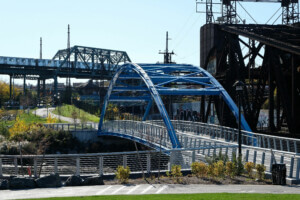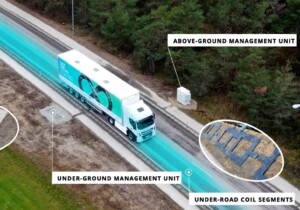A new report attempts to quantify the cost of our national reluctance to fix aging bridges, railroads and power lines. Delays in approving infrastructure projects cost the United States some $3.7 trillion, according to the nonpartisan think tank Common Good—more than twice what it would take to fix the infrastructure in the first place, according to a report titled Two Years, Not Ten Years: Redesigning Infrastructure Approvals.
That staggering price tag includes the costs of prolonged inefficiencies and unnecessary pollution that continues while local, state, and federal agencies forestall fixes to infrastructure that the American Society of Civil Engineers estimates is due for $1.7 trillion in repairs and maintenance through 2020. The New York–based think tank based their numbers on a six-year delay, which they reasoned was accurate according to available data about how long projects typically take to get shovel-ready:
Although large projects often take a decade or longer to permit, we assume that the avoidable delay on major projects is six years. There is ample anecdotal evidence of actual years of delay in the US for different types of infrastructure projects, but little cumulative data. The Federal Highway Administration estimated that the average time for approval of major highway projects was over six years. Five to ten years is a common timeframe for interstate transmission lines, and for wind farms and solar fields on federal lands on either coast.
Infrastructure maintenance and repair is, of course, a thoroughly unsexy topic. But, as the Wall Street Journal writes in an editorial about Common Good’s report, it’s important—and perhaps politically viable even in a presidential election cycle:
Common Good suggests building a process that shuttles projects through in a prompt two years. Environmental reviews should be handled by one designated official and kept to 300 pages; litigation should be restricted to the first 90 days after the permit is issued; the White House should be granted authority to appoint an agency as a ‘one-stop-shop’ for interstate projects.
Congress could address the permitting morass this fall as part of the transportation bill, and the presidential candidates could include the issue and a horror story or two in their agendas for faster economic growth. It’s hard to imagine a more sensible and politically achievable idea—and one better suited to restoring public confidence that government can carry out its basic duties.










